


[October 15th - 20th, 2018]
Mexico City, Mexico
Venues: IBERO University, UNAM School of Architecture & José Vasconcelos Library
ACADIA was formed for the purpose of facilitating communication and critical thinking regarding the use of computers in architecture, planning and building science. The organization is committed to the research and development of computational methods that enhance design creativity, rather than simply production, and that aim at contributing to the construction of humane physical environments. A particular focus is education and the software, hardware and pedagogy involved in education. Please visit the main ACADIA website for more information.
Through the theme of recalibration, this year’s ACADIA conference presents a challenge to shift our direct gaze from the machine in order observe it and its context from alternative viewpoints. This act of rhetorical refocusing is also accompanied by a physical relocation, this year’s conference being held for the first time outside of the US and Canada. The 2018 conference will take place in a location that is at once a dense contemporary megalopolis and a site of extraordinary difference and contrast. Nevertheless this change of venue is intended to be an operation of engaging and incorporating.
Rafael Lozano-Hemmer |
||||
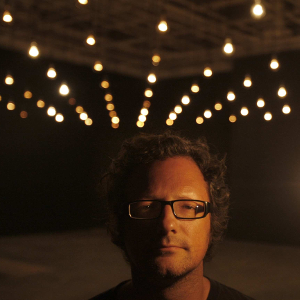
|
||||
|
Electronic artist, develops interactive installations that are at the intersection of architecture and performance art. His main interest is in creating platforms for public participation, by perverting technologies such as robotics, computerized surveillance or telematic networks. Inspired by phantasmagoria, carnival and animatronics, his light and shadow works are "antimonuments for alien agency". |
||||
Andrew Kudless |
||||
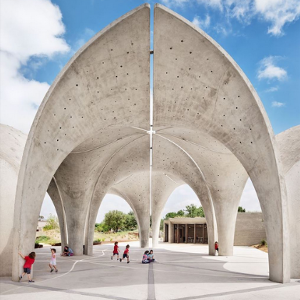
|
||||
|
Andrew Kudless is an architect based in San Francisco where he is an associate professor at the California College of the Arts. Andrew has taught design studios, workshops, and seminars at The Ohio State University, the Architectural Association (London), Yale University, and Rice University. He earned a Master of Arts with distinction from the Architectural Association’s Emergent Technologies and Design graduate program and a Master of Architecture with honors from the Tulane University School of Architecture. |
||||
Philippe Block |
||||
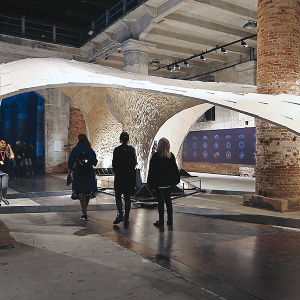
|
||||
|
The Block Research Group (BRG) at the Institute of Technology in Architecture at ETH Zürich is led by Prof. Dr. Philippe Block and Dr. Tom Van Mele. Research at the BRG focuses on several core areas, including analysis of masonry structures, graphical analysis and design methods, computational form finding and structural design, discrete element assemblies, and fabrication and construction technologies. |
||||
TALK TO A WALL |
||||
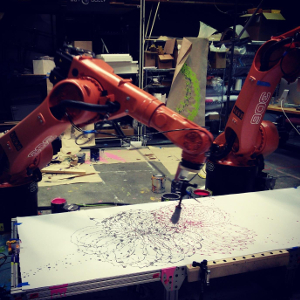
|
||||
|
Alicia Nahmad / Shajay Bhooshan / Vishu Bhooshan This workshop will be a collaborative design exercise which seeks to explore new pluralities on the intersubjectivities of human and machine within the context of architectural design methods. Participants will train a neural network (GAN) by procedurally sketching architectural ideas, they will then select words and images that associate to those sketches. |
||||
Recalibrating Architectural Design Optimization |
||||
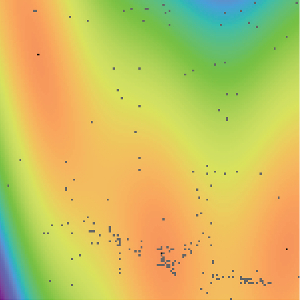
|
||||
|
Judyta Cichocka / Thomas Wortmann / Radoslaw Grymin The workshop explores applications of Architectural Design Optimization (ADO). Participants will learn about major classes of black-box optimization algorithms—Metaheuristics (including Swarm Intelligence), Direct Search and Surrogate Model-based Optimization—and experiment with algorithms from each category: Genetic Algorithms, Particle Swarm Optimization, DIRECT, and optimization with Radial Basis Functions. |
||||
[November 11th - 13th, 2018]
Mexico City, Mexico
Venues: UNAM & Centro de Cultura Digital
TABOO - TRANSGRESSION - TRANSCENDENCE in Art & Science - DESCRIPTION
In this panel we will explore a broad range of techniques for expanding consciousness and augmenting perception through cognition technology. We will explore different strategies for human enhancement unveiling unconscious forces, lucid dreaming, hallucination, self-knowledege, meta cognition and transcendence, while speculating on authoritarian mind control, emotional manipulation, memory implantation and brain mining.
We will discuss and recontextualize artworks that approach dream recording research, EEG in altered states of cognition, brain wave control as human-machine interaction, lucid dreams techniques and binaural sound for inducing brainwaves frequencies.
Given the broad democratization of biometrics and the increasing use in surveillance systems, there is a pervasive interest in mainstream media about the use of tech surveillance. The aim of this panel is to establish and discuss different routes of enhancing awareness of our unconcious self, to identify different roles in which it can be applied and the broader societal implications of these technologies.
Eddie Castañeda |
||||
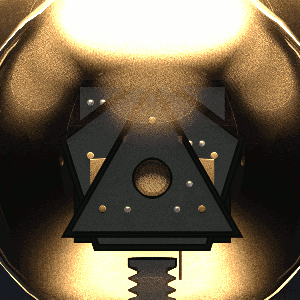
|
||||
|
Multidisciplinary creator devoted to developing new paradigms that revolve around science, technology, art, social structures, philosophy, the mind, and reality itself. His work has different outcomes that include scientific experiments, art work, writings, software, hardware and music; and has been appreciated in many countries, such as Japan, Australia, Germany, Ireland, England, France, Southafrica and U.S.A., among many more, and has appeared in Wired Magazine UK as one of top 100 innovations. |
||||
Arcangel Constantini |
||||
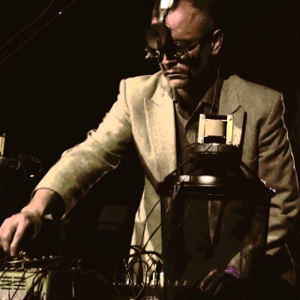
|
||||
|
Arcángel Constantini produces work of a marked ludic-experimental nature, strongly influenced by the fortuitous, chaotic processes of the city as reflected in the systematic use of error aesthetics. His work and artistic practice explore the dynamics of visual and sound works, low-tech installations, propaganda action, visual/sound performance, hardware hacking, physical computing, installation, sound art and net art. |
||||
Nathalie Regard |
||||
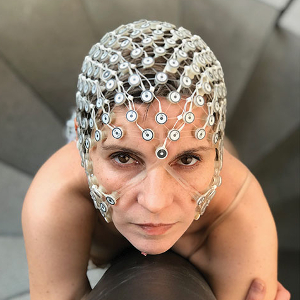
|
||||
|
Nathalie Regard’s work is placed as an intermediate between virtual and visual. The work reflects and refracts the power and the nature of the image, through both electronic and hand manipulated processes, relating to it both memory and representation. Nathalie comes from the practice of painting, preserves about it the notion of persistence, the idea that a task is not significant for its effect but how it becomes a way of life or a habit, investing in the backlog texture as a collection of moments. |
||||
Jaime Lobato |
||||
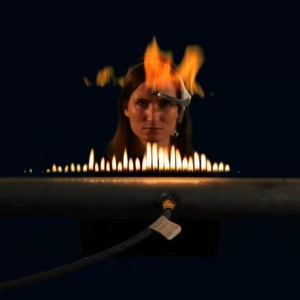
|
||||
|
Multimedia artist, composer, curator and independent researcher. He made his studies at the Faculty of Music at the National Autonomus University of Mexico (UNAM). As a multimedia artist he has participated in several collective exhibitions in Mexico, Berlin, New York, Madrid, Montevideo, Hamilton and Saõ Paulo. He has composed music for video-art, interactive installations, electroacustic mixed pieces, dance companies, sound-poetry and performances. |
||||
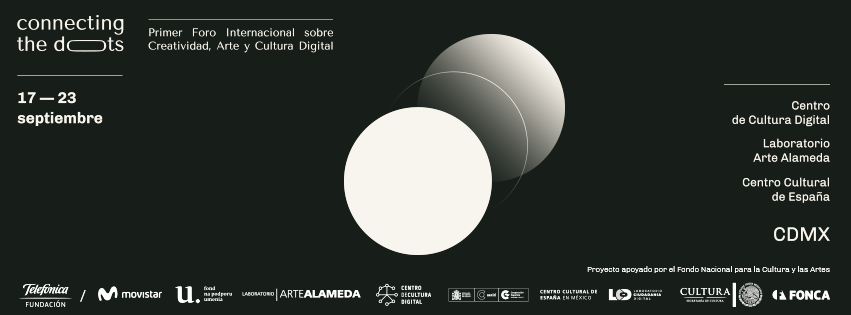
[17 - 23 de Septiembre, 2018]
CDMX, Mexico
Sedes: Centro de Cultura Digital, Laboratorio Arte Alameda, Centro Cultural de España
Presentación oficial de Cyberdelia Mexicana A.C., asociación de media arts basada en Guadalajara. A lado de Amor Muñoz, Gilberto Esparza, Gibrán Morgado, Edith Medina y Edwina Porto Carrero.
Exploraremos latitudes alternas al centralismo cultural en México como articulador de narrativas de especulación tecnológica. Rechazaremos la centralidad conservadora para explorar la creación artificial de nuevas identidades por medio del arte tecnológico, sus situaciones y relaciones simbólicas. La curaduría como puerta para la redefinición de identidad local. Imaginando un nuevo mutante mexicano, uno que retoma los temas trascendentales del futuro y los aborda desde una perspectiva intrépida, oportuna e histórica abarcando nuevos escenarios.